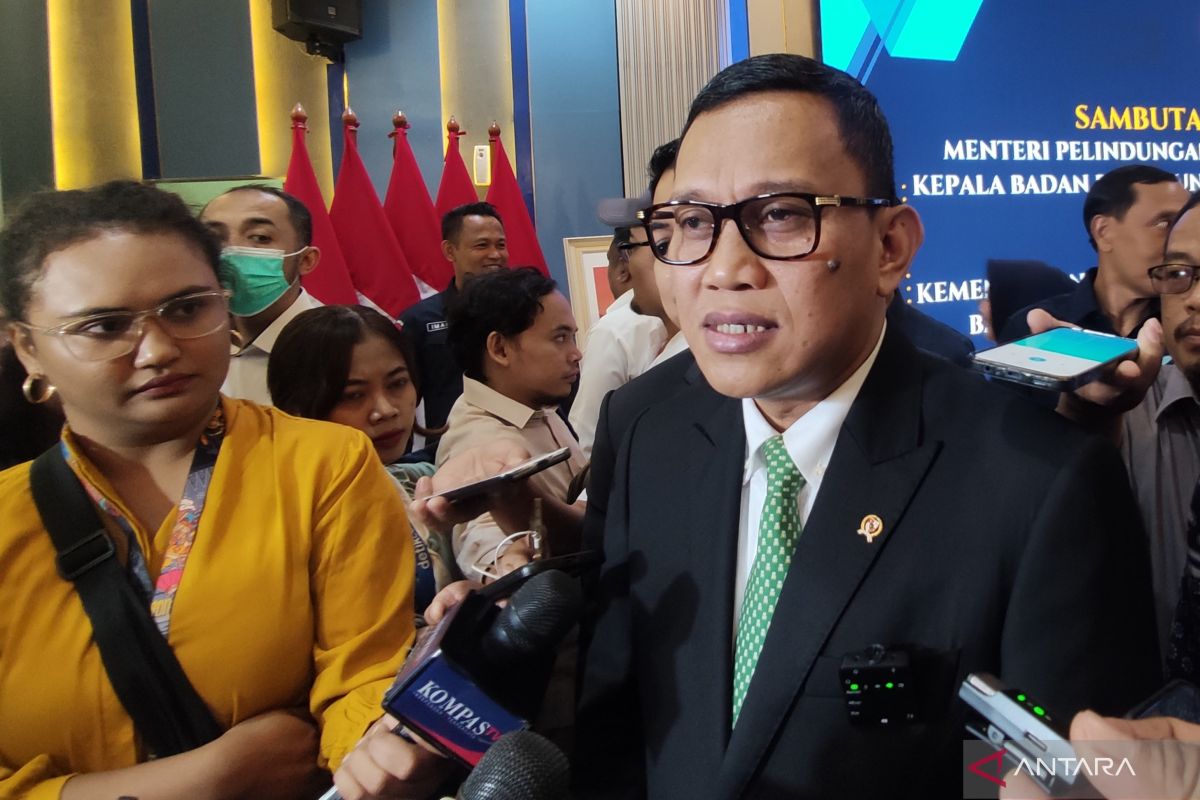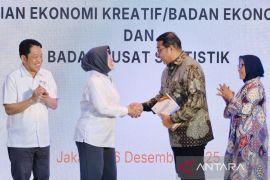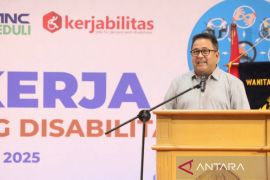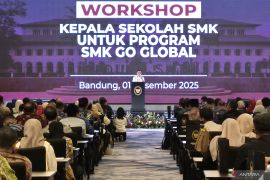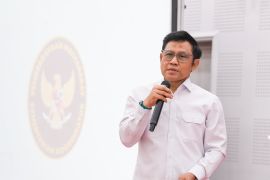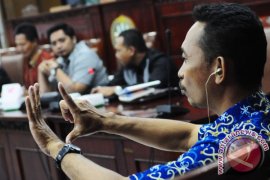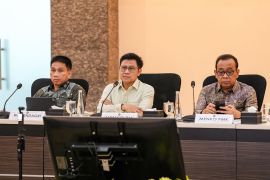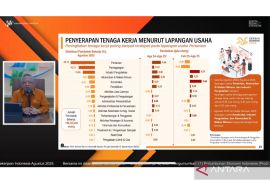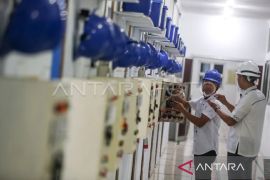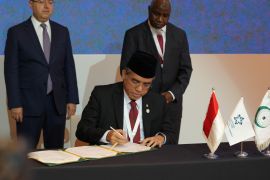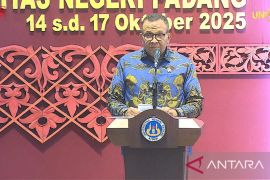Apart from increasing the capacity and capabilities of Indonesian migrant workers, Karding also intends to immediately formulate a strategy to strengthen the capabilities and diplomatic networks of Indonesian labor attachés abroad to address all probJakarta (ANTARA) - Minister of Protection of Indonesian Migrant Workers (PPMI) and Head of the Indonesian Migrant Workers Protection Agency (BP2MI) Abdul Kadir Karding is committed to accelerating regulations and strategy for strengthening labor attaché diplomacy abroad.
Karding made the statement following a briefing to the leadership and staff of the Ministry of Protection of Indonesian Migrant Workers here on Tuesday.
The minister explained that several rules will be adjusted in line with changes in the nomenclature of the institution from a non-ministerial body to a ministry.
The adjustments include rules for the division of work for the four directorates general that changed from the earlier deputy level.
The BP2MI head ensured that this was based on the results of the preparation of the Ministry of State Apparatus Empowerment and Bureaucratic Reform (Kemen-PANRB).
"It is already there, so this adjustment process is targeted to be completed as soon as possible, and I think it can be done in one month. The important point is that protection for Indonesian migrant workers can be carried out better," he remarked.
Apart from increasing the capacity and capabilities of Indonesian migrant workers, Karding also intends to immediately formulate a strategy to strengthen the capabilities and diplomatic networks of Indonesian labor attachés abroad to address all problems of migrant workers.
Labor attachés in Europe, the Middle East, and Asia need to hone their diplomatic skills and understand the law and the culture of advocacy for overseas partners and local press companies.
Thus, they can ensure that Indonesian migrant workers have full rights to wages or social security from their employers or other authorities in charge abroad.
Karding noticed that in recent years, several Indonesian migrant workers had not received their full wages. Moreover, their wages were used to meet their daily needs, as they had to pay the placement fees.
Article 30, paragraph 1 of Law Number 18 of 2017 stipulates that Indonesian migrant workers may not be charged placement fees.
"In reality, migrant workers still pay Rp35 million-Rp90 million placement fees per month. That is not a small amount. Therefore, this is our effort to ensure they get their wages in full so they can save and buy a house for the family they left behind," he affirmed.
Related news: Home minister to focus on regional elections, digitalization
Related news: Trade Minister Santoso hoping to wrap up IEU-CEPA talks quickly
Translator: M. Riezko Bima Elko Prasetyo, Katriana
Editor: Arie Novarina
Copyright © ANTARA 2024
